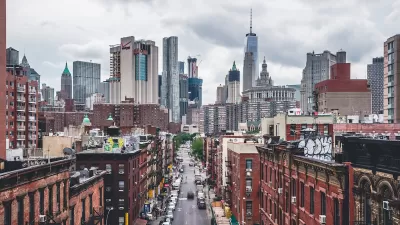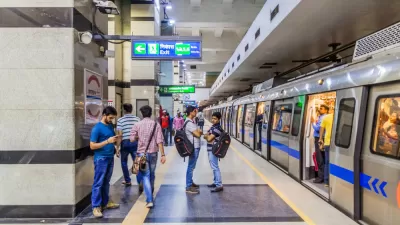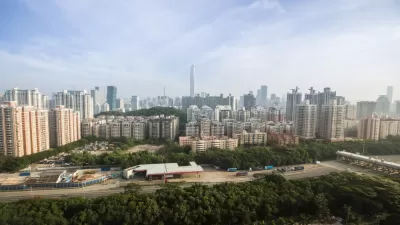Writing for City Journal, Mario Polese argues that big cities are more important than ever, and backs up his argument with seven reasons they're luring people, from economies of scale to falling transportation and communication costs.
Even in an age where people can telecommute, the lure of being in a big city seems to be growing. Polese offers seven reasons why.
"Let's start with the most basic pillar, one that has historically supported the great manufacturing economies of big cities: economies of scale in production. That is, as the scale of production increases, unit costs fall. That basic rule of economics makes it profitable for firms to manufacture goods in just a few large factories, rather than in many smaller ones. And if you're going to have just one or two big plants, it makes sense to locate them where you can find a lot of workers: densely packed urban areas. This logic explains the growth of large manufacturing cities like Detroit in the earlier part of the twentieth century. Nowadays, though, it applies most readily to midsize cities, because real estate in larger cities often costs too much to build big factories."
FULL STORY: Why Big Cities Matter More than Ever

Planetizen Federal Action Tracker
A weekly monitor of how Trump’s orders and actions are impacting planners and planning in America.

Congressman Proposes Bill to Rename DC Metro “Trump Train”
The Make Autorail Great Again Act would withhold federal funding to the system until the Washington Metropolitan Area Transit Authority (WMATA), rebrands as the Washington Metropolitan Authority for Greater Access (WMAGA).

The Simple Legislative Tool Transforming Vacant Downtowns
In California, Michigan and Georgia, an easy win is bringing dollars — and delight — back to city centers.

The States Losing Rural Delivery Rooms at an Alarming Pace
In some states, as few as 9% of rural hospitals still deliver babies. As a result, rising pre-term births, no adequate pre-term care and "harrowing" close calls are a growing reality.

The Small South Asian Republic Going all in on EVs
Thanks to one simple policy change less than five years ago, 65% of new cars in this Himalayan country are now electric.

DC Backpedals on Bike Lane Protection, Swaps Barriers for Paint
Citing aesthetic concerns, the city is removing the concrete barriers and flexposts that once separated Arizona Avenue cyclists from motor vehicles.
Urban Design for Planners 1: Software Tools
This six-course series explores essential urban design concepts using open source software and equips planners with the tools they need to participate fully in the urban design process.
Planning for Universal Design
Learn the tools for implementing Universal Design in planning regulations.
Smith Gee Studio
City of Charlotte
City of Camden Redevelopment Agency
City of Astoria
Transportation Research & Education Center (TREC) at Portland State University
US High Speed Rail Association
City of Camden Redevelopment Agency
Municipality of Princeton (NJ)





























